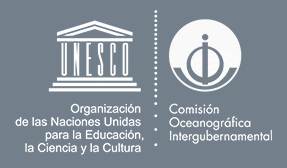Displaying 893 results.
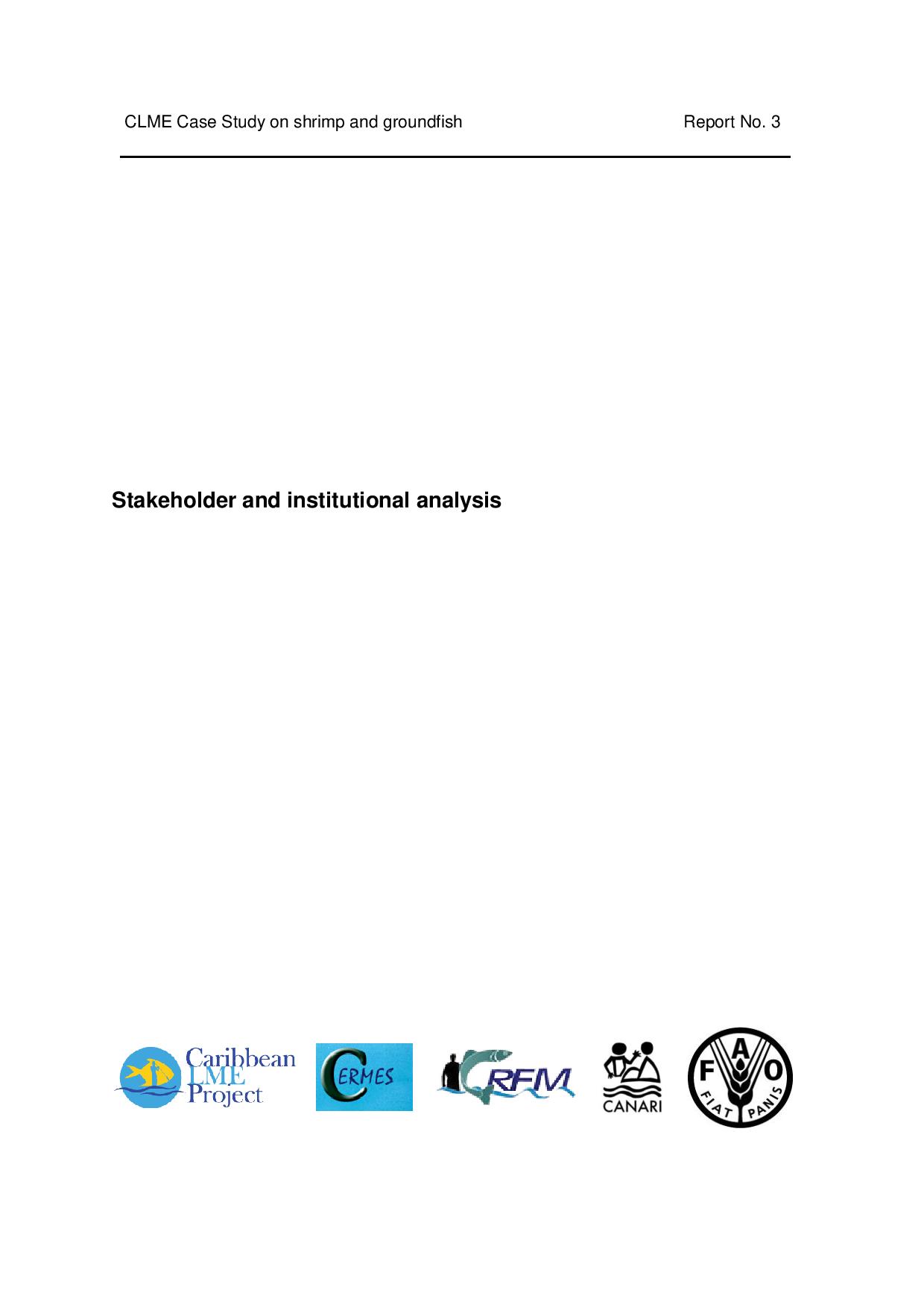
Case Study On The Shared Stocks Of The Shrimp And Ground Fishery Of The Guianias – Brazil Shelf Stakeholder and Institutional Analysis CLME Case Study on shrimp and groundfish.Report No. 3
FAO implemented a “Case Study on Shared Stocks of the Shrimp and Groundfish Fishery of the Guianas-Brazil Shelf” (UNGF/INT/001/OPS) between July 2011 and February 2013, with six participating countries (Brazil, French Guiana (EU/France), Guyana, Suriname, Trinidad and Tobago and Venezuela).
The purpose of the case study on Shared Stocks of the Shrimp and Groundfish Fishery of the Guianas-Brazil Shelf was to fill knowledge gaps, contribute to the final CLMETransboundary DiagnosticAnalysis and to the Strategic Action Programme (SAP), with priority actions to be undertaken to ensure the sustainability of the shrimp and groundfish fisheries.
Author: FAO
Year: 2012
Keywords: Shrimp and Groundfish Fishery case study
 4
4


 Report issue
Report issue
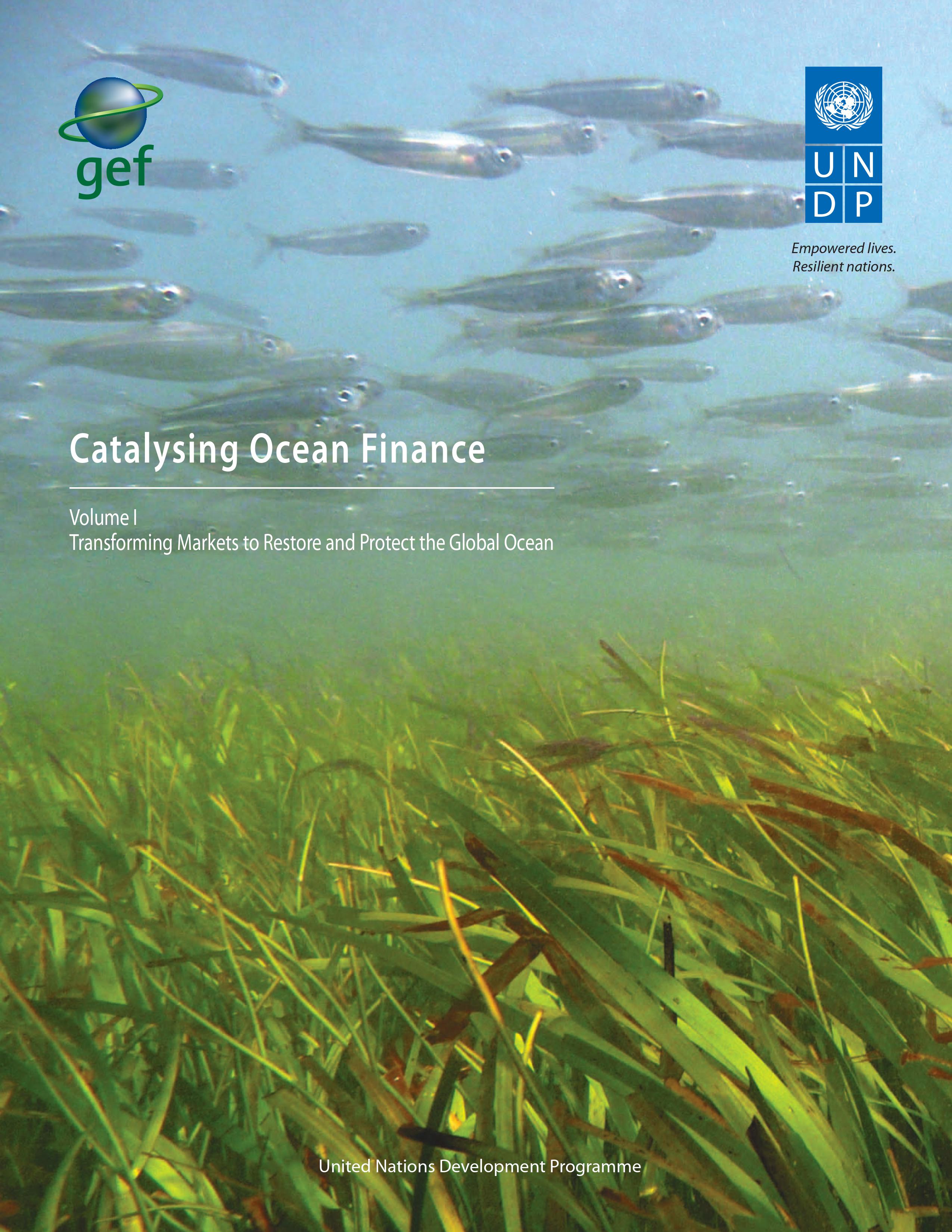
Catalysing Ocean Finance – Volume I Transforming Markets to Restore and Protect the Global Ocean
The world’s oceans and coastal areas are an integral part of life on earth. They are the source of a variety of essential goods and services – including food, transport, oil, gas, and minerals, to name but a few, and also deliver vital ecosystem services such as climate regulation and oxygen production.
This publication – Catalysing Ocean Finance – demonstrates that, far from being an intractable problem, sustainable ocean management could become a successful legacy of today’s generation of decision-makers. It shows how the challenges facing the ocean stem from widely understood market and policy failures – failures which can be addressed through the application of appropriate mixes of market and policy instruments.
Author: UNDP
Year: 2012
Keywords: marine habitats
 6
6


 Report issue
Report issue
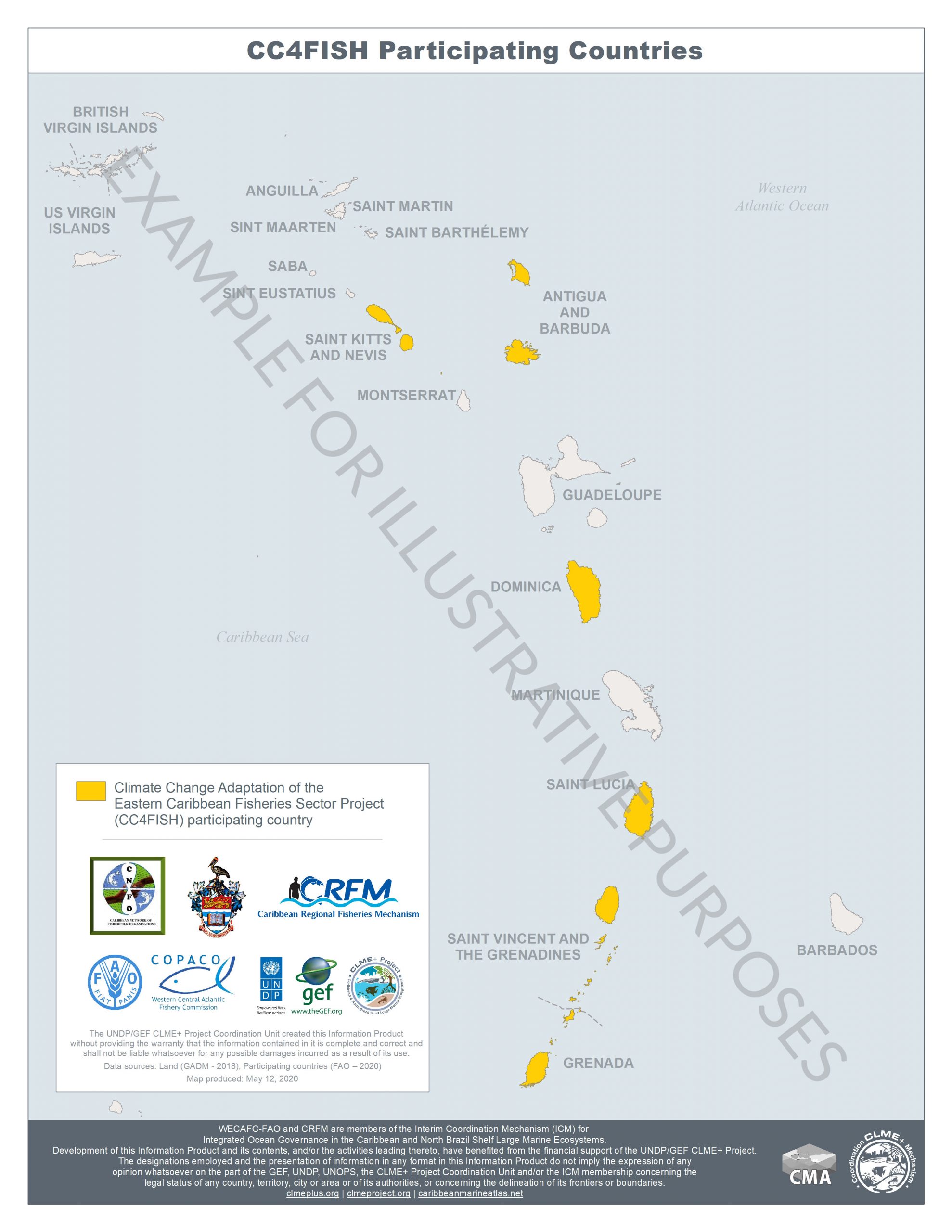
CC4FISH Participating Countries
Author: CLME+ PCU
Year: 2020
Keywords: CC4FISH Participating Countries
 4
4


 Report issue
Report issue
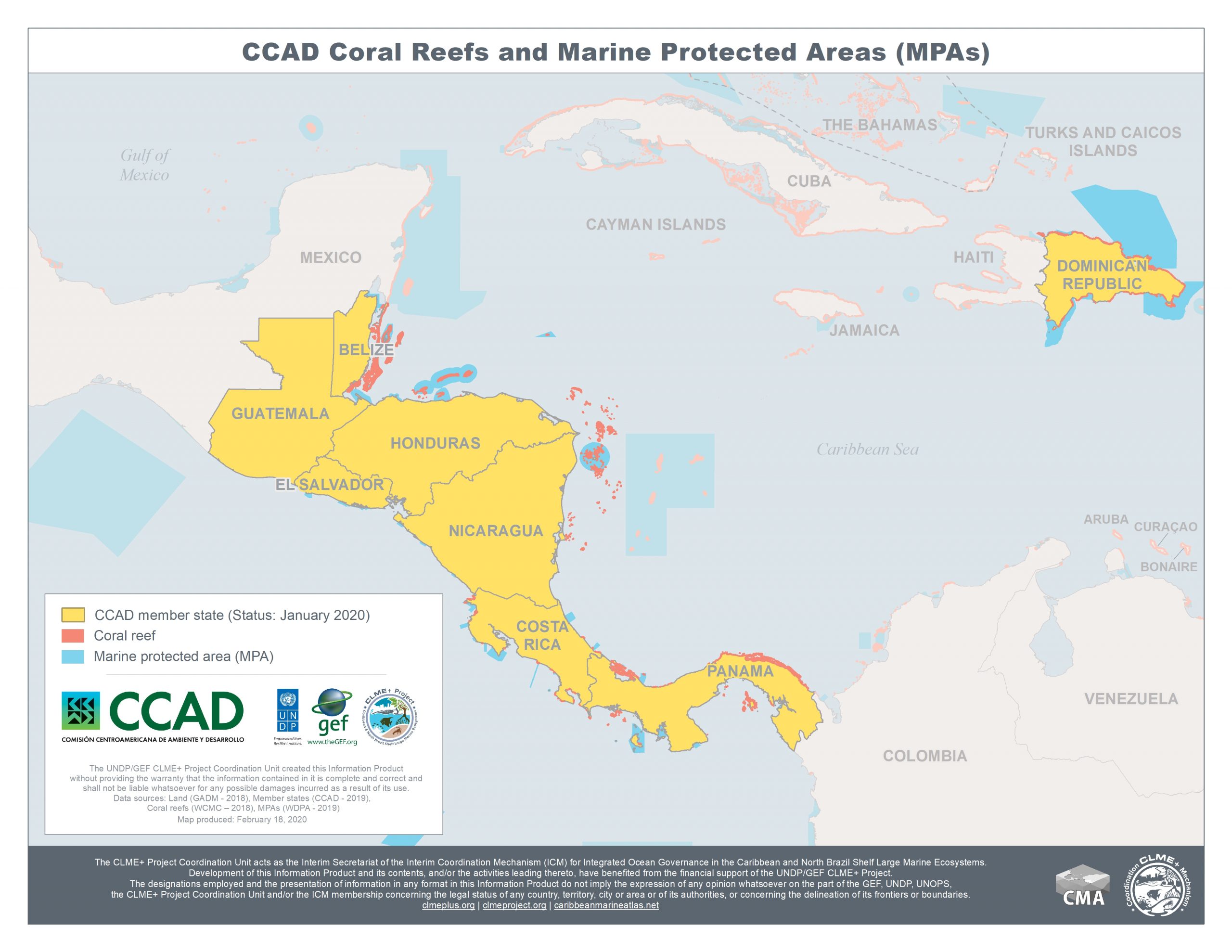
CCAD Coral Reefs and Marine Protected Areas (MPAs)
Author: CLME+ PCU
Year: 2020
Keywords: CCAD Coral Reefs and Marine Protected Areas (MPAs) coral reefs
 5
5


 Report issue
Report issue

Challenges to Implementing Regional Ocean Governance in the Wider Caribbean Region
For over two decades, the countries, subregional and regional level intergovernmental organizations in the Wider Caribbean Region (WCR) have been engaged in an initiative to implement a regional governance approach for managing the shared living marine resources of the Caribbean Sea and adjacent regions. Given the inherent socio-economic and geopolitical complexity of the region, this approach has been recognized as essential to address the challenges associated with the interconnected nature of shared ecosystem goods and services upon which countries in the region depend. This paper uses a retrospective lens to shed light on the challenges confronting the region and its efforts to overcome them. It is based on the Large Marine Ecosystem Governance Framework developed specifically for the WCR in 2006 and characterized as “learning by doing.” Data were obtained for this study through desktop review of published literature documenting progress over the period 2001–2021 and insights requested from 15 key individual and institutional contributors involved in the initiative. While the lack of financial resources was an underpinning and cross-cutting issue, key constraints identified were categorized as institutional, capacity building, awareness raising, leadership, legal, political, social capital, or socio-cultural. They include national capacity to engage with regional level processes due to a variety of factors including funding, political, and institutional challenges of developing a regional coordination mechanism, engaging the broader ocean community to create the critical mass needed, the difficulty of mainstreaming ocean affairs into high level political and decision-making fora and the scarcity of local, national and regional technical and political champions. This paper advances understanding of the barriers to be overcome in highly complex socio-politically developing regions if regional ocean governance initiatives are to play the essential role identified in the 2030 Sustainable Development Agenda, reaping the sustainable benefits of a blue economy.
Author: Fanning, L. Mahon, R. Compton, S. Corbin, C. Debels, P. Haughton, M. Heileman, S. Leotaud, N. McConney, P. Perez, M. Phillips, T. Toro, C.
Year: 2021
Keywords: Challenges to Implementing Regional Ocean Governance in the Wider Caribbean Region
 4
4


 Report issue
Report issue
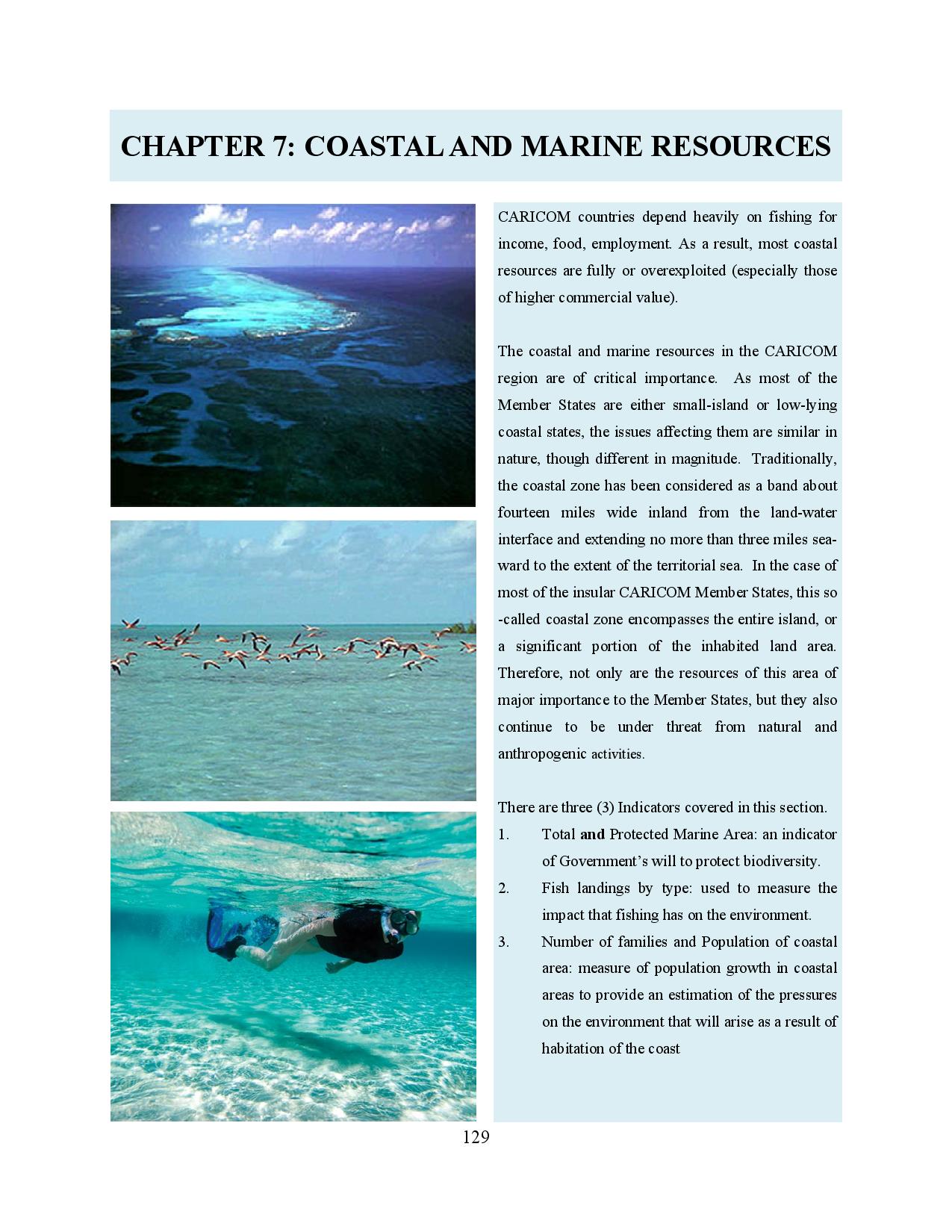
Chapter 7: Coastal and Marine Resources
The coastal and marine resources in the CARICOM region are of critical importance. As most of the Member States are either small-island or low-lying coastal states, the issues affecting them are similar in nature, though different in magnitude
Author: CARICOM
Year:
Keywords:
 4
4


 Report issue
Report issue
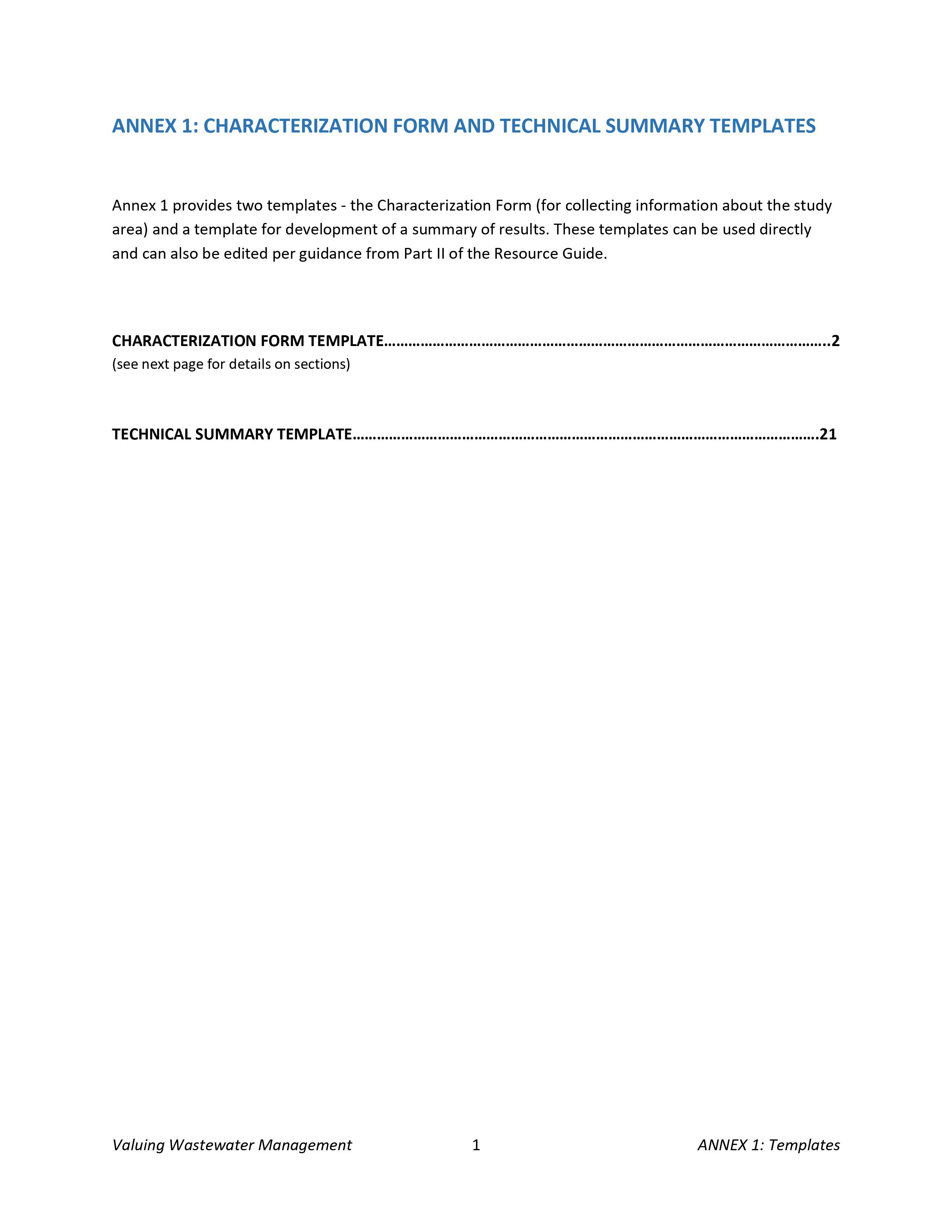
Characterization Form for Defining the Costs and Benefits of Domestic Wastewater Management
Author:
Year:
Keywords:
 5
5


 Report issue
Report issue
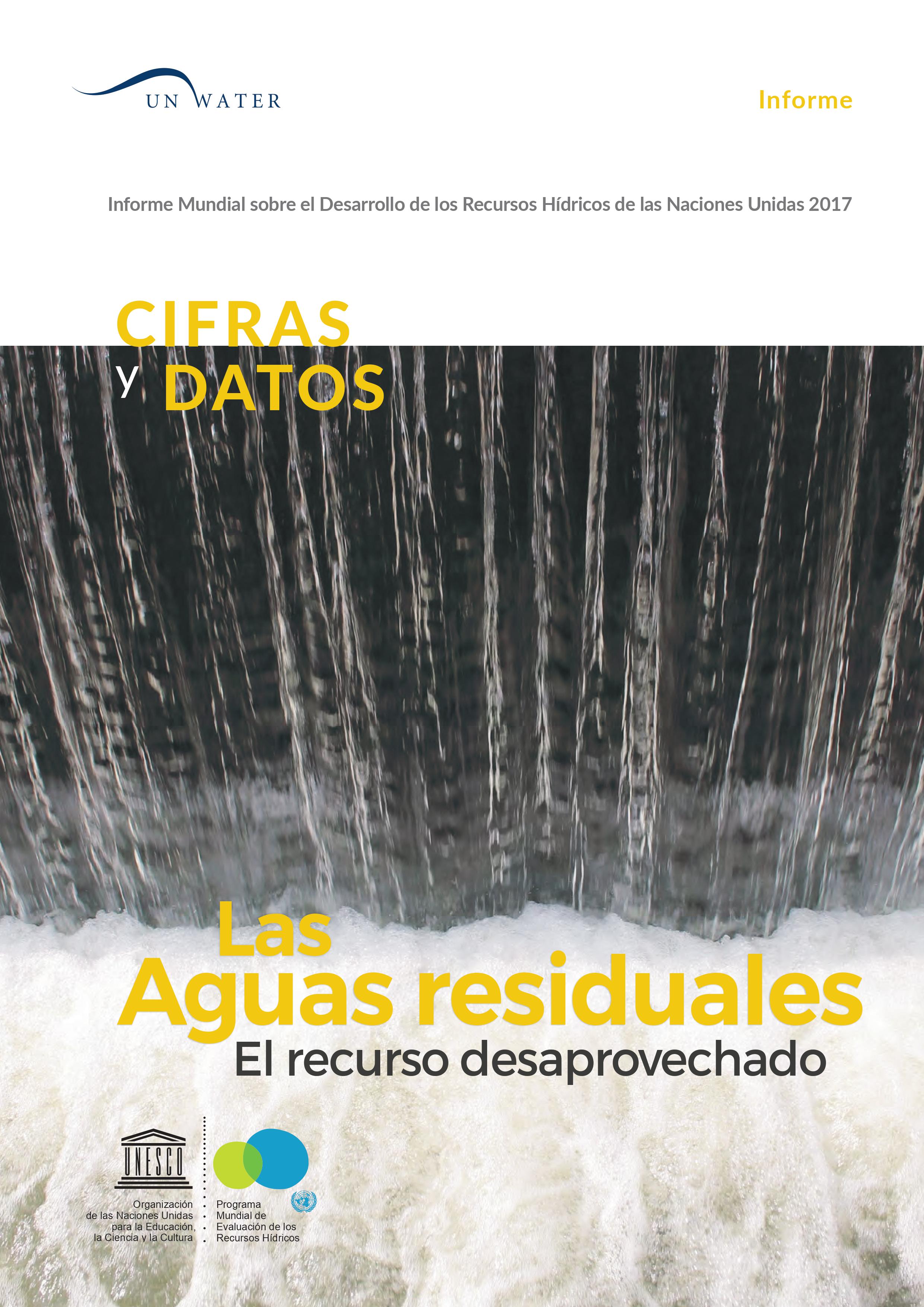
Cifras y Datos, Las Aguas Residuales El recurso Desaprovechado – Informe Mundial sobre el Desarrollo de Los Reecursos Hídricos de las Naciones Unidas 2017
Este Documento muestra cifras y datos en modo de gráficas, con el propósito de exponer la importancia que tienen las aguas residuales en la economía de las regiones y del modo en que estas son empleadas como instrumento de aprovechamiento económico, resalta también la forma en que estas influyen en el medio ambiente y la salud para la población en general.
Author: UNESCO
Year: 2017
Keywords:
 5
5


 Report issue
Report issue
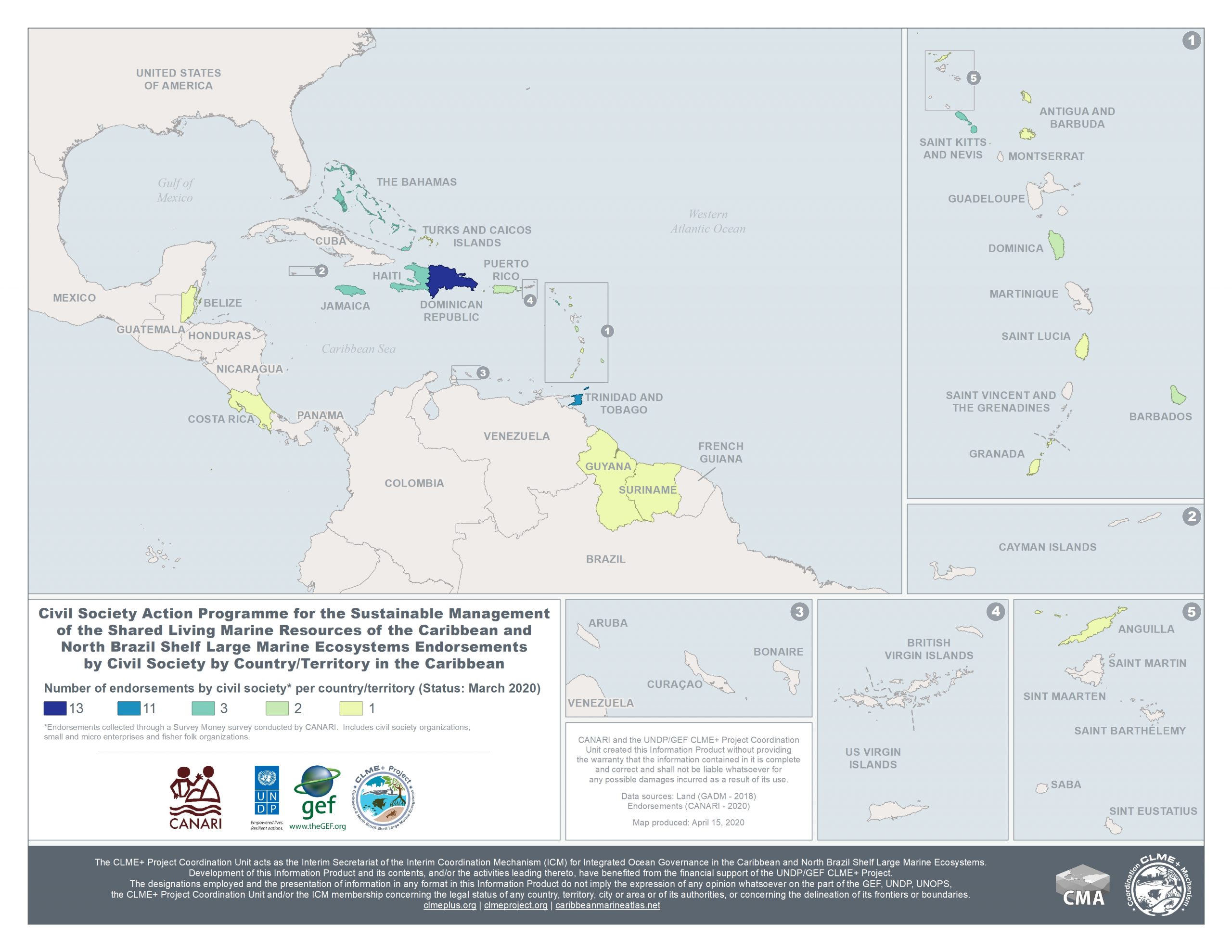
Civil Society Action Programme for the Sustainable Management of the Shared Living Marine Resources of the Caribbean and North Brazil Shelf Large Marine Ecosystems Endorsements by Civil Society by Country/Territory in the Caribbean
Author: CLME+ PCU
Year: 2020
Keywords: Civil Society Action Programme for the Sustainable Management of the Shared Living Marine Resources of the Caribbean and North Brazil Shelf Large Marine Ecosystems Endorsements by Civil Society by Country/Territory in the Caribbean
 7
7


 Report issue
Report issue
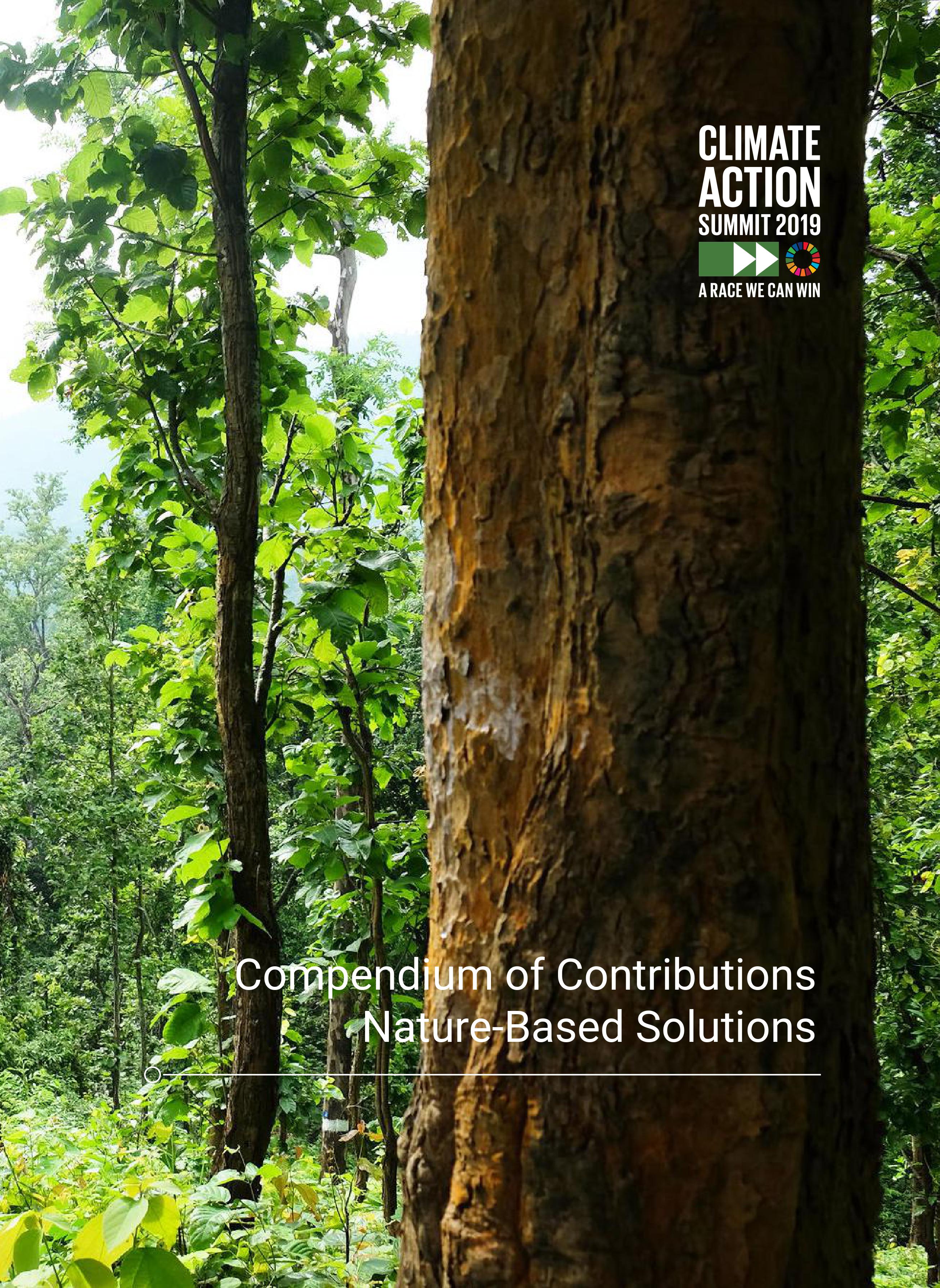
Climate Action Summit 2019 a Race we Can Win – Compendium of Contributions Nature-Based Solutions
In preparing for the 23 September 2019 Climate Action Summit called by the United Nations Secretary-General, the Nature-Based Solutions (NBS) Coalition put out a global call for initiatives on how NBS can be enhanced and scaled-up. More than 180 proposals were received and have been posted online in advance of the Summit.
The purpose of this compendium is to share a summary of initiatives and best practices received from the global call. The NBS coalition co-leads, China and New Zealand, drew on the proposals to build the NBS for Climate Manifesto below in order to articulate the value and rationale for implementing NBS.
Author: NBS Facilitation Team
Year: 2019
Keywords:
 4
4


 Report issue
Report issue










